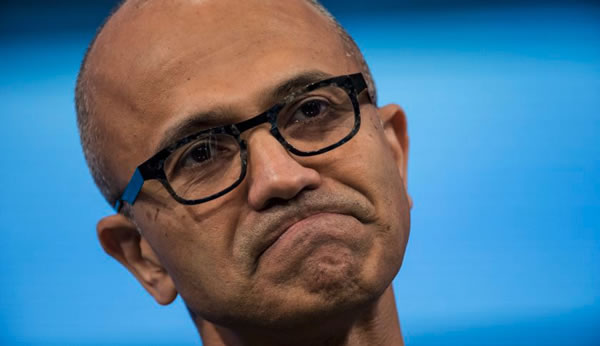Goodwill
When someone says “goodwill”, most people in North America don’t think of a spirit of friendship and cooperation. They think of the store pictured below:

…in fact, it’s also the first thing Google thinks of when you say “goodwill”.
Goodwill also has a business definition: it’s the reputation of a business, expressed as a dollar value. This reputation comes from factors such as its brand name, how the business is perceived by its customers and the market, and any intangible “special sauce” that sets the company apart, such as its history, notable high-level employees, unique approaches or processes, and the like. It appears in a company’s books as an intangible asset, unlike buildings and office equipment, which any Business or Accounting 101 textbook will tell you are tangible assets.
For example, Apple has a high goodwill value: it’s $4.6 billion as of September 2014. Google’s is even higher: $16 billion as of December 2014. Packard Bell, not so much.
Goodwill is an arbitrary value, and it isn’t used in day-to-day business. It’s used to help determine the value of a company when it’s acquired. If you live in the world of Silicon Valley startups, you might think that its sole purpose is to inflate the price of a company past its actual book value, but as my friend Mike van de Water (who’s forgotten more about accounting than I have learned) says:
Goodwill isn’t a way of pumping up the value, it’s exactly the reverse – the excess of the purchase price over the fair market value of all the identifiable assets acquired. In Microsoft’s case, that would include tangible assets, such as buildings and equipment, and intangibles, such as licenses, patents, etc.. If those fair market values come up to less than the purchase price, the delta becomes goodwill. Negative goodwill — a.k.a. a bargain — is also possible.
Impairment charge
When someone says “impairment charge”, this is what I usually think of:
Nick Nolte: quite possibly the most best celebrity DUI photo ever.
Click the photo for context.
In the world of finance, impairment is a lowering of the value of a company’s capital. It can reflect the decrease in worth of tangible assets — again, the classic “Business 101” examples are buildings and equipment — and intangible assets, such as the aforementioned goodwill.
The term “Impairment charges” are often used to describe the writing off of lost or worthless goodwill, such as AOL’s 2002 impairment charge of $54 billion. It was an accountant-style way of admitting that AOL wasn’t as good as an acquisition as was they’d thought (AOL was technically the buyer because of they were the more valuable company due to their overinflated share prices back in 1999/2000; Time-Warner, as the “grown-up” in the deal, was really doing the buying).
For the purposes of this article, that’s all you really need to know about impairment. If you’d like to dive in a little deeper — and hey, if you’re a regular reader of this blog, you’re that type of person — check out Investopedia’s “impairment charges” page.
Microsoft’s impairment charge

Even if you’ve been ignoring all the warnings for the past few years (back in 2012, I wrote “you’d best run away from this platform as quickly as your feet will take you“), there’s no more denying that Windows Phone isn’t long for this world. Microsoft’s latest news release, which bears the corporate-euphemism-laden title Microsoft announces restructuring of phone hardware business, can be boiled down to two key take-aways:
- They’re cutting 7,800 jobs, “primarily in the phone business”.
- They will “record an impairment charge of approximately $7.6 billion related to assets associated with the acquisition of the Nokia Devices and Services (NDS) business”, and that it’s an “impairment adjustment of its Phone Hardware segment assets and goodwill”.
At this point, you should be asking: “Hmmm…how much did Microsoft pay to acquire Nokia’s Devices and Services business, anyway? Would it be in the ballpark of the impairment charge?” A little Googling — or Binging, if you must — will reveal that it is. When Microsoft completed the acquisition last year, it had spent $7.2 billion.
They’re not saying it with words, but something that means more in business. They’re saying it with the universal language of money: Their mobile device division is worth nothing.
Along with these other statements in the release:
- that Microsoft is adopting a “strategy to grow a standalone phone business to a strategy to grow and create a vibrant Windows ecosystem including our first-party device family”, and
- that “the future prospects for the Phone Hardware segment are below original expectations”
…the writing on the wall has never been more clear. They’re getting out of the phone hardware business, and given that they make more than 95% of the Windows Phones, it’s quite clear Windows Phone’s days are numbered.

You know things are bad when Paul Thurrott, a die-hard Microsoft and Windows fan, says that things are coming to an end. I have to agree with his prediction:
Microsoft will cut back on the number of Lumia handsets it makes, a long overdue change. It will wait and see how these new devices perform during the current fiscal year, which runs through June 2016. And it won’t go well: Windows Phone will continue to lose share, and will continue to struggle.
I expect Microsoft to kill Lumia, possibly as soon as mid-2016, and relegate Windows 10 Mobile to third party devices, which can include phones. These phones will never gain any appreciable market share. Tablets will probably continue to do high single-digit or possibly low double-digit market share only for the foreseeable future. The future is the “mobility of experiences,” not Microsoft mobile hardware/phones.
I still love Windows Phone. I desperately want it to succeed. But you can’t get emotional about this stuff. Windows Phone is failing, and has been on a downward trajectory pretty much forever. You can pretend otherwise, but I can’t do that disservice to the community. I can only be realistic. And realistically, things have gone from bad to worse.
Here’s mobile consultant/curmudgeon Tomi Ahonen’s prediction:
So now we see the final stage of this sad play. Nadella will give one last chance for someone other than Elop to try, with only a very reduced portoflio of handsets and with far less staff, to try the miracle of turning this business around. And they warn publically not to expect profits for more than a year. And yes, as the losses will continue, this unit will be shut down. Now the clock is ticking… From 12 to 24 months i the time-frame when Microsoft exists the phone manufacturing business. And Windows Phone side of Windows 10, I would not count on much R&D ivolvement on this dead path. The next Windows version (I would suggest it might be called Windows 11) will no longer bother to support handsets, only tablets and PCs…
As a former Windows Phone Champ, it breaks my heart to see this happening, but as you’ve probably guessed from all the development articles I’ve written on iOS and Swift (as well as the occasional Android piece), I’ve moved on.
Updated Thursday, July 9 for a less hyperbolic description of goodwill and a better description of impairment. I also yanked out a section where I talked about the early days of Windows Phone and the “phone funeral” parade that Microsoft had in September 2010 — I’ll use that story in another article.

One reply on “Goodwill, impairment, and what’s to become of Windows Phone”
[…] Remember…the parade/mock funeral held on Microsoft’s campus just after the first version of Windows Phone? … Ballmer had given them orders to write a brand new mobile operation system…or else. … It’s not quite five years later, and…you have to admit that Windows Phone is in deep trouble now. … The writing on the wall has never been more clear: They’re getting out of the phone hardware business [and] Windows Phone’s days are numbered. … You know things are bad when Paul Thurrott, a die-hard Microsoft and Windows fan, says [so]. MORE […]